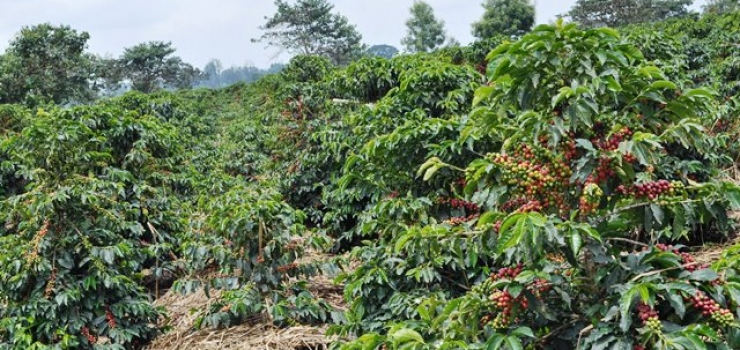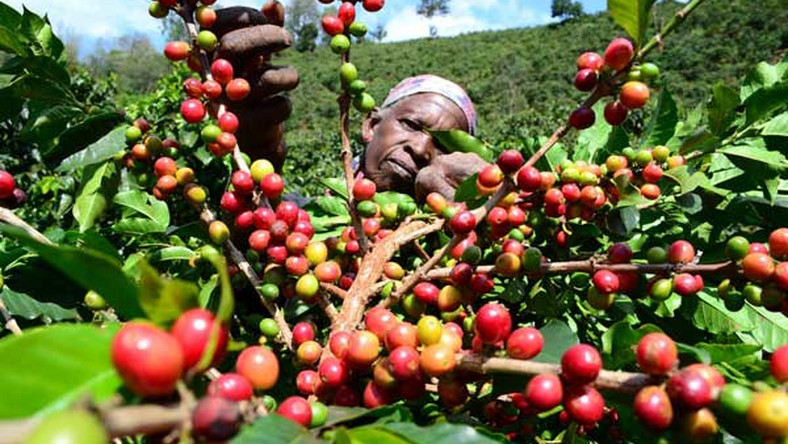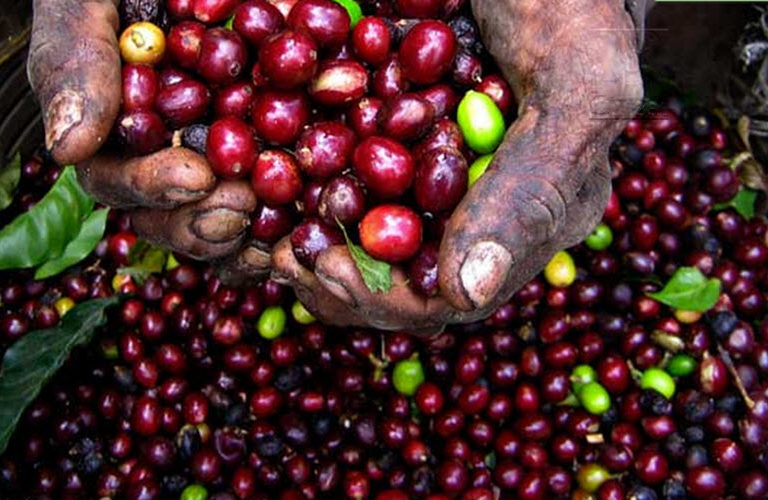Annual output of Kenyan coffee the Kenyan coffee industry is showing signs of continuous decline
Professional coffee knowledge exchange more coffee bean information please follow the coffee workshop (Wechat official account cafe_style)
In recent years, due to low returns and poor management, coffee production in Kenya has declined year by year, and the coffee industry has shown a trend of decline.

According to the latest data from Kenya's National Bureau of Statistics, Kenya's coffee exports fell by 19% from 2639 metric tons in January 2020 to 2129 metric tons in January 2021.
As a result of Kenya's economic weakness, the exchange rate of its currency against the United States dollar fell (the highest exchange rate of the dollar against the Kenyan shilling in January 2021: 1 = 110.40 Kenyan shillings), causing Kenyan exports to rise from 985 million shillings to 1.3 billion shillings, soaring by 36 per cent.
In the late 1980s, Kenyan coffee production peaked at 130000 tons a year, but now it produces only about 40, 000 tons a year. The potential annual output per coffee tree is 35 kg, while most smallholder coffee growers produce less than 2 kg per tree. At present, Kenya accounts for nearly 1% of the world's total coffee production, but the country's coffee production has declined in recent years.

Kenya exported 600000 bags (60 kg each) of coffee in 2020, down from 815000 bags in the previous quarter, according to the U.S. Department of Agriculture.
Kenyan coffee's market share in places such as the United States and South Korea has also been declining. In 2019, US consumption of Kenyan coffee fell to 11.78 per cent from 13.28 per cent in 2018. Although South Korea's market share in Kenyan coffee exports has risen from 6.43 per cent in 2017 to 9.44 per cent in 2018, it fell again to 6.51 per cent in 2019.
Recently, the Kenyan authorities launched a coffee revitalization plan of 1.5 billion Kenyan shillings aimed at increasing coffee production and quality, protecting farmers from exploitation and saving the decline of the country's coffee industry.
The project is a new attempt by Kenya to revitalize the industry and is funded by the World Bank. The project complements the 3 billion-shilling Cherry turnover Foundation (Cherry Revolving Fund) launched earlier by the government. The foundation aims to provide affordable, sustainable and accessible loans to smallholder coffee growers.

In addition, the President of Kenya, Uhuru Kenyatta (Uhuru Kenyatta), extended the mandate of the Executive Committee of the Coffee sector in the country so that it could monitor the findings of the reform working group.
The working group also recommended changing the coffee crop management framework, promoting boutique coffee, increasing the participation of young people and transforming the Nairobi Coffee Exchange into a listed company.
For more boutique coffee beans, please add private Qianjie coffee on Wechat. WeChat account: kaixinguoguo0925
Important Notice :
前街咖啡 FrontStreet Coffee has moved to new addredd:
FrontStreet Coffee Address: 315,Donghua East Road,GuangZhou
Tel:020 38364473
- Prev

Where did Nestl é come from? which companies did it acquire? Nestl é acquires Bountiful Core Brand
On April 30th, Nestl é, the world's largest food company, announced the acquisition of the core Bountiful brand. It is understood that the deal is to buy the core brand of The Bountiful Company, a maker of nutritional supplements, from private equity giant KKR for $5.75 billion, which is expected to be completed in the second half of 2021. In addition, Nestle
- Next

What does coffee "cross the border"? What are the cross-border joint products of Yongpu coffee brand
When it comes to the cross-border of coffee brands, you will certainly think of Yongpu Coffee, a resident guest in the cross-border circle. Yongpu Coffee has quickly won a large number of loyal fans by virtue of the creative points of UFOs and the cross-border way of the alliance. Yongpu Coffee, founded in 2014, is the first brand in China to launch portable cold extract coffee liquid and flash extract coffee concentrate. Its products include hanging ears and cold extraction coffee liquid.
Related
- What is the difference between Indonesian Sumatra Mantinin coffee and gold Mantinin? How to distinguish between real and fake golden Mantelin coffee?
- What does bypass mean in coffee? Why can hand-brewed coffee and water make it better?
- Unexpected! Ruixing Telunsu lattes use a smoothie machine to foam milk?!
- % Arabia's first store in Henan opens into the village?! Netizen: Thought it was P's
- Does an authentic standard mocha coffee recipe use chocolate sauce or powder? Mocha Latte/Dirty Coffee/Salty Mocha Coffee Recipe Share!
- What is the difference between Vietnam egg coffee and Norway egg coffee? Hand-brewed single product coffee filter paper filter cloth filter flat solution!
- What is the difference between sun-cured and honey-treated coffee? What are the differences in the flavor characteristics of sun-honey coffee?
- How to make Italian latte! How much milk does a standard latte use/what should the ratio of coffee to milk be?
- How to make butter American/butter latte/butter Dirty coffee? Is hand-brewed coffee good with butter?
- Is Dirty the cold version of Australian White? What is the difference between dirty coffee/decent coffee and Australian white espresso?

